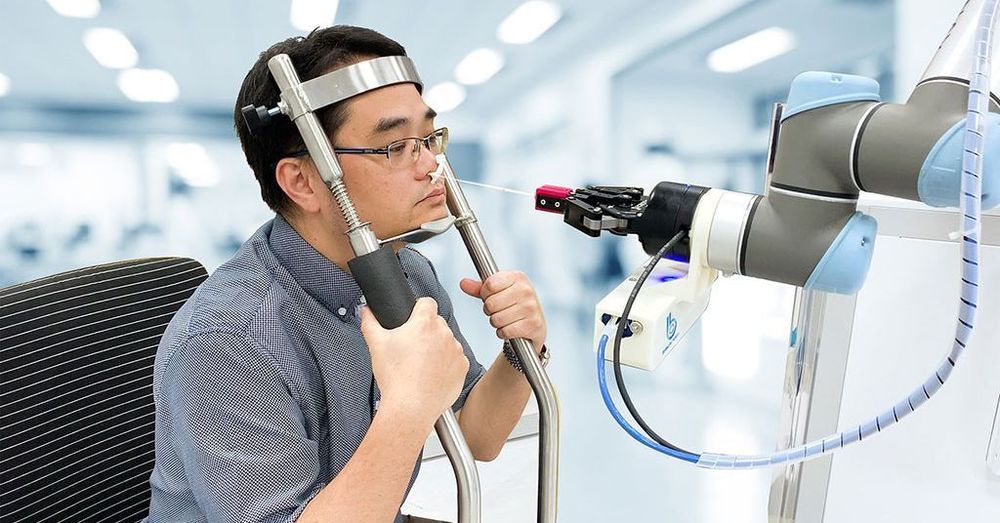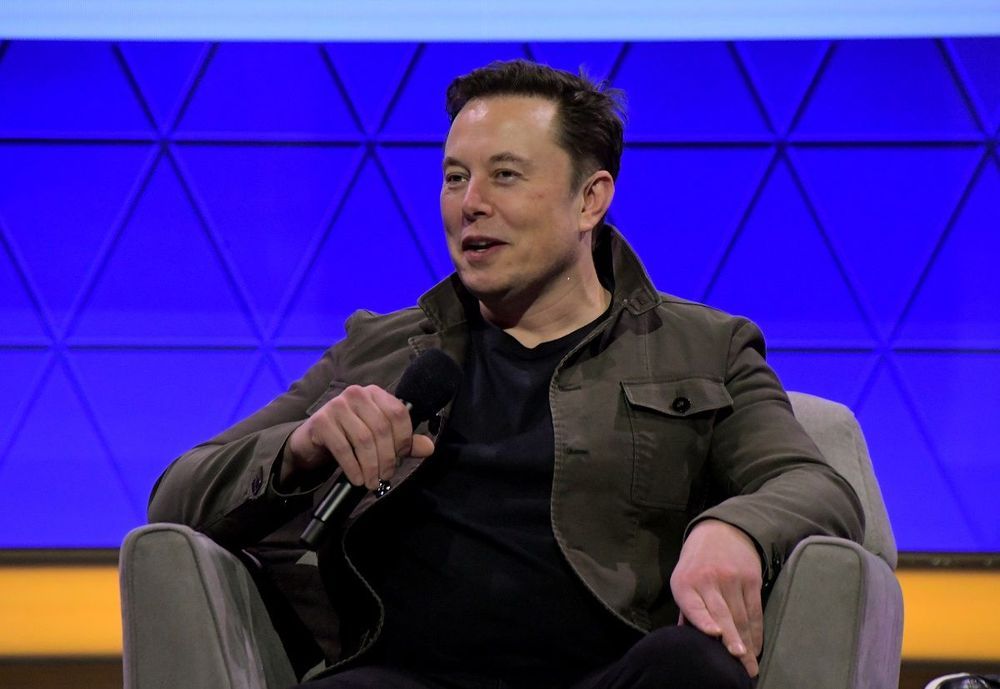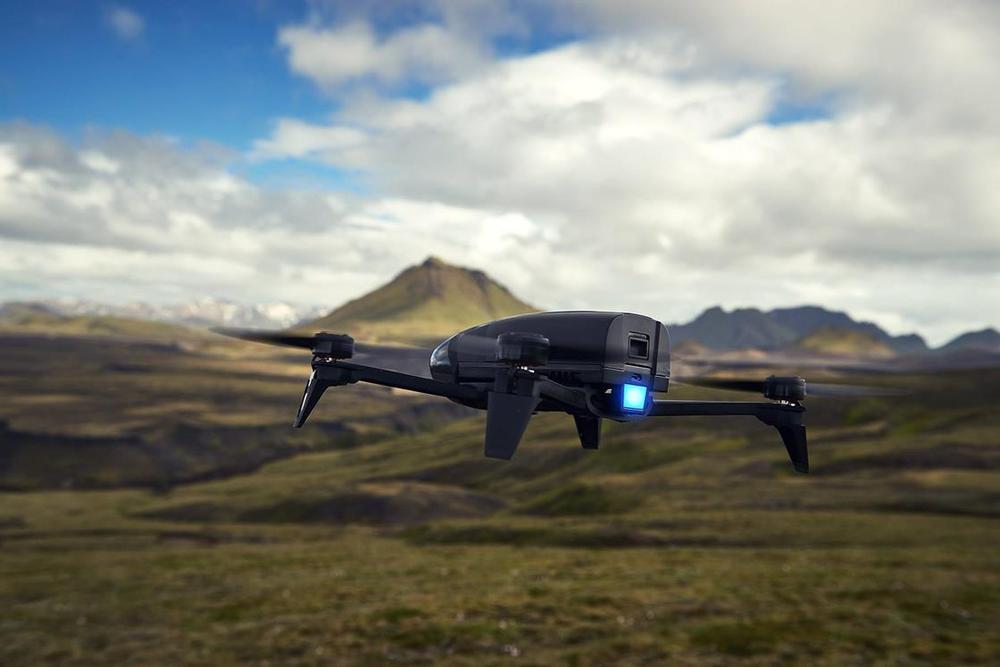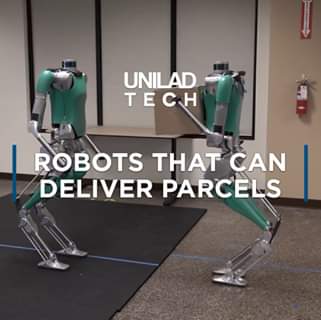The imbalance of supply and demand during the pandemic has caused a variety of challenges for retailers. Here’s how artificial intelligence can help.
Category: robotics/AI – Page 2,130

An AI just designed then 3D printed a completely new form of rocket engine
Unlike a traditional rocket engine, which consists of individually designed parts that are combined together the AI designed rocket engine was 3D printed as one continuous piece. This includes both the combustion chamber where fuel and oxidiser is burned and the surface channels, through which the fuel is circulated to cool the chamber and keep it from overheating.
“In a rocket, the cooling channels are generally welded onto the combustion chamber, which through wear and tear can cause errors and explosions,” explained Hyperganic’s design director Duy-Anh Pham.
For the past number of years I’ve been taking about the rise of so called Creative Machines, Artificial Intelligence (AI) based “innovation” machines, that can design and innovate things for themselves without any human intervention – things such as aircraft parts, chairs, fashion lines, interplanetary rovers, self-evolving robots, and Under Armour trainers. And now those same creative machines have made yet another leap, and again it’s another first for the space industry, after German software company Hyperganic announced they’d developed a 3D printed rocket engine prototype, which was completely designed by AI.


This piece was written as part of the Artificial Intelligence and International Stability Project at the Center for a New American Security
This piece was written as part of the Artificial Intelligence and International Stability Project at the Center for a New American Security, an independent, nonprofit organization based in Washington, D.C. Funded by Carnegie Corporation of New York, the project promotes thinking and analysis on AI and international stability. Given the likely importance that advances in artificial intelligence could play in shaping our future, it is critical to begin a discussion about ways to take advantage of the benefits of AI and autonomous systems, while mitigating the risks. The views expressed here are solely those of the author and do not represent positions of IEEE Spectrum or the IEEE.
AI deception: when your artificial intelligence learns to lie.

Neuralink Brain Chip Update: Elon Musk Says Neurons Will Fire Up in Real-Time on August 28
Elon Musk’s Neuralink will have an event on August 28 to update the public on the company’s progress since last year’s launch.
According to a Teslarati, Musk posted some updates in July regarding the advising about the event of the brain-machine interface company. On July 9, he tweeted that a progress update will happen on August 28. The following day, he posted: “AI symbiosis while u wait.” The event is expected to have a live stream on social media platforms.
Let’s watch “neurons firing” in real time.

The term ‘ethical AI’ is finally starting to mean something
Since OpenAI first described its new AI language-generating system called GPT-3 in May, hundreds of media outlets (including MIT Technology Review) have written about the system and its capabilities. Twitter has been abuzz about its power and potential. The New York Times published an op-ed about it. Later this year, OpenAI will begin charging companies for access to GPT-3, hoping that its system can soon power a wide variety of AI products and services.
Earlier this year, the independent research organisation of which I am the Director, London-based Ada Lovelace Institute, hosted a panel at the world’s largest AI conference, CogX, called The Ethics Panel to End All Ethics Panels. The title referenced both a tongue-in-cheek effort at self-promotion, and a very real need to put to bed the seemingly endless offering of panels, think-pieces, and government reports preoccupied with ruminating on the abstract ethical questions posed by AI and new data-driven technologies. We had grown impatient with conceptual debates and high-level principles.
And we were not alone. 2020 has seen the emergence of a new wave of ethical AI – one focused on the tough questions of power, equity, and justice that underpin emerging technologies, and directed at bringing about actionable change. It supersedes the two waves that came before it: the first wave, defined by principles and dominated by philosophers, and the second wave, led by computer scientists and geared towards technical fixes. Third-wave ethical AI has seen a Dutch Court shut down an algorithmic fraud detection system, students in the UK take to the streets to protest against algorithmically-decided exam results, and US companies voluntarily restrict their sales of facial recognition technology. It is taking us beyond the principled and the technical, to practical mechanisms for rectifying power imbalances and achieving individual and societal justice.
Between 2016 and 2019, 74 sets of ethical principles or guidelines for AI were published. This was the first wave of ethical AI, in which we had just begun to understand the potential risks and threats of rapidly advancing machine learning and AI capabilities and were casting around for ways to contain them. In 2016, AlphaGo had just beaten Lee Sedol, promoting serious consideration of the likelihood that general AI was within reach. And algorithmically-curated chaos on the world’s duopolistic platforms, Google and Facebook, had surrounded the two major political earthquakes of the year – Brexit, and Trump’s election.

GPT-3, Bloviator: OpenAI’s language generator has no idea what it’s talking about
Since OpenAI first described its new AI language-generating system called GPT-3 in May, hundreds of media outlets (including MIT Technology Review) have written about the system and its capabilities. Twitter has been abuzz about its power and potential. The New York Times published an op-ed about it. Later this year, OpenAI will begin charging companies for access to GPT-3, hoping that its system can soon power a wide variety of AI products and services.
Is GPT-3 an important step toward artificial general intelligence—the kind that would allow a machine to reason broadly in a manner similar to humans without having to train for every specific task it encounters? OpenAI’s technical paper is fairly reserved on this larger question, but to many, the sheer fluency of the system feels as though it might be a significant advance.
We doubt it. At first glance, GPT-3 seems to have an impressive ability to produce human-like text. And we don’t doubt that it can used to produce entertaining surrealist fiction; other commercial applications may emerge as well. But accuracy is not its strong point. If you dig deeper, you discover that something’s amiss: although its output is grammatical, and even impressively idiomatic, its comprehension of the world is often seriously off, which means you can never really trust what it says.


Pentagon approves five US drone makers ahead of likely ban on China’s DJI
Ahead of a likely ban on the US federal government’s use of Chinese-made quadcopters, including popular DJI drones, the Department of Defense has approved the products of five US-based unmanned air vehicle (UAV) makers for government use.
Those companies are Altavian, Parrot, Skydio, Teal and Vantage Robotics.
Small UAVs from these manufacturers have been deemed cyber-secure by the Pentagon – not vulnerable to backdoor spying that some suspect might be possible from the video cameras and other sensors attached to Chinese-made DJI drones. The US Congress is considering banning the US federal government from using foreign-made drones as part of its 2021 National Defense Authorization Act.
